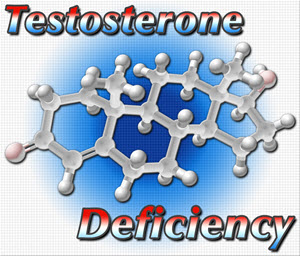Introduction to Premature Ejaculation and Prostate Health
Premature ejaculation (PE) is a common sexual dysfunction among American males, characterized by ejaculation that occurs sooner than desired, either before or shortly after penetration, causing distress or interpersonal difficulty. While PE can be influenced by psychological factors, recent research has begun to explore its potential connections to prostate health, a critical aspect of male wellness. This article delves into the relationship between PE and prostate health, offering insights and guidance for those affected.
The Prostate's Role in Sexual Function
The prostate gland, a small walnut-shaped organ located just below the bladder, plays a significant role in male reproductive health. It produces a fluid that nourishes and protects sperm, contributing to semen. The prostate's health can impact sexual function, including ejaculation control. Conditions such as prostatitis (inflammation of the prostate) or benign prostatic hyperplasia (BPH, an enlarged prostate) can lead to changes in sexual function, including difficulties with ejaculation timing.
Exploring the Connection Between PE and Prostate Health
Emerging studies suggest a potential link between prostate health and PE. For instance, chronic prostatitis may lead to pelvic pain and discomfort, which can contribute to sexual dysfunction, including PE. Additionally, the treatment of prostate conditions, such as medications for BPH, can affect ejaculation timing. While the exact mechanisms are still under investigation, it's clear that maintaining prostate health is crucial for overall sexual wellness.
Symptoms and Diagnosis
Recognizing the symptoms of both PE and prostate issues is the first step toward effective management. PE is typically diagnosed when a man consistently ejaculates within one minute of penetration and experiences significant distress as a result. Prostate health concerns may manifest as urinary symptoms, such as difficulty starting or maintaining a steady stream of urine, frequent urination, or pain during urination or ejaculation. A healthcare provider can perform a physical examination, possibly including a digital rectal exam, and may order tests such as a prostate-specific antigen (PSA) blood test to assess prostate health.
Treatment Options and Management Strategies
Managing PE and maintaining prostate health often involves a multifaceted approach. For PE, behavioral techniques such as the start-stop method or the squeeze technique can be effective. Additionally, certain medications, such as selective serotonin reuptake inhibitors (SSRIs), may be prescribed to delay ejaculation. For prostate health, lifestyle changes such as maintaining a healthy diet, regular exercise, and adequate hydration can be beneficial. In cases of prostatitis or BPH, specific medications or, in severe cases, surgical interventions may be necessary.
The Importance of Regular Check-ups
Regular medical check-ups are essential for monitoring both sexual function and prostate health. American males are encouraged to discuss any concerns about PE or prostate symptoms with their healthcare provider. Early detection and treatment of prostate conditions can prevent complications and improve quality of life, including sexual health.
Conclusion: A Holistic Approach to Sexual and Prostate Health
Understanding the potential link between premature ejaculation and prostate health is crucial for American males seeking to maintain their sexual wellness. By addressing both conditions through a combination of lifestyle adjustments, medical treatments, and regular health screenings, men can enhance their overall well-being. As research continues to uncover the intricacies of this relationship, staying informed and proactive about one's health remains paramount.
Contact Us Today For A Free Consultation

- Mastering the Clock: Hormonal Influences on Ejaculatory Timing and Premature Ejaculation in American Males [Last Updated On: February 18th, 2025] [Originally Added On: February 18th, 2025]
- Understanding Premature Ejaculation: Facts, Myths, and Effective Treatments for American Men [Last Updated On: February 24th, 2025] [Originally Added On: February 24th, 2025]
- Decoding the Blink-and-Miss Syndrome: A Comprehensive Understanding of Premature Ejaculation [Last Updated On: February 25th, 2025] [Originally Added On: February 25th, 2025]
- Exploring the Enigma: Unraveling the Science Behind Premature Ejaculation [Last Updated On: February 26th, 2025] [Originally Added On: February 26th, 2025]
- Delineating Triggers: Understanding the Mechanisms Behind Premature Ejaculation [Last Updated On: February 27th, 2025] [Originally Added On: February 27th, 2025]
- Unplumbed Depths: The Psychological Underpinnings of Premature Ejaculation [Last Updated On: February 28th, 2025] [Originally Added On: February 28th, 2025]
- Mastering the Art of Endurance: Sustainable Strategies for Delayed Ejaculation [Last Updated On: February 28th, 2025] [Originally Added On: February 28th, 2025]
- Decoding the Dynamics: Understanding Premature Ejaculation Beyond Stereotypes [Last Updated On: March 1st, 2025] [Originally Added On: March 1st, 2025]
- The Incessant Walk in the Dark: Understanding Premature Ejaculation [Last Updated On: March 2nd, 2025] [Originally Added On: March 2nd, 2025]
- Exploring Premature Ejaculation: Causes, Impacts, and Management Strategies for Improved Sexual Health [Last Updated On: March 3rd, 2025] [Originally Added On: March 3rd, 2025]
- Unraveling the Mystery: A Comprehensive Look at Premature Ejaculation in American Men [Last Updated On: March 4th, 2025] [Originally Added On: March 4th, 2025]
- Understanding Premature Ejaculation: Impacts and Treatment Options [Last Updated On: March 4th, 2025] [Originally Added On: March 4th, 2025]
- Understanding and Managing Premature Ejaculation: Causes, Impacts, and Treatment Options [Last Updated On: March 5th, 2025] [Originally Added On: March 5th, 2025]
- Understanding and Managing Delayed Ejaculation: Causes and Behavioral Strategies [Last Updated On: March 6th, 2025] [Originally Added On: March 6th, 2025]
- The Psychological Impact of Performance Anxiety on Premature Ejaculation: Strategies for Management [Last Updated On: March 7th, 2025] [Originally Added On: March 7th, 2025]
- Comprehensive Guide to Understanding and Managing Premature Ejaculation: Causes, Diagnosis, and Treatment [Last Updated On: March 8th, 2025] [Originally Added On: March 8th, 2025]
- Natural Remedies for Premature Ejaculation: Techniques, Exercises, and Herbal Solutions Explored [Last Updated On: March 9th, 2025] [Originally Added On: March 9th, 2025]
- Exploring the Dual Impact of Erectile Dysfunction Medications on Premature Ejaculation: A Comprehensive Analysis [Last Updated On: March 12th, 2025] [Originally Added On: March 12th, 2025]
- Mastering the Art of Ejaculatory Control: Techniques for American Males [Last Updated On: March 13th, 2025] [Originally Added On: March 13th, 2025]
- Mindfulness Mastery: Enhancing Sexual Endurance and Overcoming Premature Ejaculation [Last Updated On: March 15th, 2025] [Originally Added On: March 15th, 2025]
- Managing Premature Ejaculation in Casual Dating: Strategies for American Males [Last Updated On: March 18th, 2025] [Originally Added On: March 18th, 2025]
- Anxiety's Role in Fueling Premature Ejaculation Among American Men: Causes and Treatments [Last Updated On: March 18th, 2025] [Originally Added On: March 18th, 2025]
- Lifestyle Changes to Manage Premature Ejaculation in American Males [Last Updated On: March 18th, 2025] [Originally Added On: March 18th, 2025]
- Managing Premature Ejaculation: Communication, Treatment, and Therapy for Couples [Last Updated On: March 18th, 2025] [Originally Added On: March 18th, 2025]
- Understanding and Treating Premature Ejaculation: A Comprehensive Guide [Last Updated On: March 19th, 2025] [Originally Added On: March 19th, 2025]
- Nervous System's Role in Ejaculation and Premature Ejaculation in American Males [Last Updated On: March 19th, 2025] [Originally Added On: March 19th, 2025]
- Countdown Challenge: Enhancing Ejaculatory Control in American Males [Last Updated On: March 19th, 2025] [Originally Added On: March 19th, 2025]
- Premature Ejaculation's Social Impact on American Men: Relationships, Self-Esteem, and Stigma [Last Updated On: March 20th, 2025] [Originally Added On: March 20th, 2025]
- Mastering Premature Ejaculation: Effective Techniques and the Power of Pause [Last Updated On: March 21st, 2025] [Originally Added On: March 21st, 2025]
- Psychological Strategies for Managing Premature Ejaculation in American Men [Last Updated On: March 21st, 2025] [Originally Added On: March 21st, 2025]
- Overcoming Premature Ejaculation: Holistic Strategies for Enhanced Intimacy and Control [Last Updated On: March 21st, 2025] [Originally Added On: March 21st, 2025]
- Premature Ejaculation: Emotional, Financial Impacts and Treatment Options for American Men [Last Updated On: March 21st, 2025] [Originally Added On: March 21st, 2025]
- Understanding and Managing Premature Ejaculation: Causes, Treatments, and Lifestyle Tips [Last Updated On: March 22nd, 2025] [Originally Added On: March 22nd, 2025]
- Mastering Premature Ejaculation: Comprehensive Strategies for American Males [Last Updated On: March 22nd, 2025] [Originally Added On: March 22nd, 2025]
- Innovative Strategies to Delay Ejaculation: Advances in Premature Ejaculation Research [Last Updated On: March 22nd, 2025] [Originally Added On: March 22nd, 2025]
- Dietary Strategies to Manage Premature Ejaculation: Key Foods and Practical Tips [Last Updated On: March 22nd, 2025] [Originally Added On: March 22nd, 2025]
- Managing Premature Ejaculation: Psychological, Pharmacological, and Behavioral Approaches [Last Updated On: March 22nd, 2025] [Originally Added On: March 22nd, 2025]
- Premature Ejaculation: Understanding, Treating, and Overcoming the Common Sexual Dysfunction [Last Updated On: March 23rd, 2025] [Originally Added On: March 23rd, 2025]
- Understanding Sexual Arousal and Managing Premature Ejaculation in American Men [Last Updated On: March 24th, 2025] [Originally Added On: March 24th, 2025]
- Exercise and Premature Ejaculation: Enhancing Sexual Health Through Physical Fitness [Last Updated On: March 24th, 2025] [Originally Added On: March 24th, 2025]
- Stress Reduction Strategies for Managing Premature Ejaculation in American Men [Last Updated On: March 24th, 2025] [Originally Added On: March 24th, 2025]
- Ejaculatory Control: Understanding and Managing Premature Ejaculation in American Men [Last Updated On: March 24th, 2025] [Originally Added On: March 24th, 2025]
- Restorative Sleep Enhances Sexual Stamina, Mitigates Premature Ejaculation in American Males [Last Updated On: March 24th, 2025] [Originally Added On: March 24th, 2025]
- Managing Premature Ejaculation Through Open Communication and Mutual Support [Last Updated On: March 24th, 2025] [Originally Added On: March 24th, 2025]
- Medications Impacting Ejaculatory Speed: Insights into PE Treatment Options [Last Updated On: March 24th, 2025] [Originally Added On: March 24th, 2025]
- Managing Premature Ejaculation: Innovative Digital Tools for American Men [Last Updated On: March 24th, 2025] [Originally Added On: March 24th, 2025]
- Managing Premature Ejaculation: Techniques and Holistic Approaches for American Men [Last Updated On: March 25th, 2025] [Originally Added On: March 25th, 2025]
- Managing Premature Ejaculation: Self-Help Resources and Techniques for American Men [Last Updated On: March 25th, 2025] [Originally Added On: March 25th, 2025]
- Managing Premature Ejaculation: Strategies for Men Across All Ages [Last Updated On: March 25th, 2025] [Originally Added On: March 25th, 2025]
- Managing Premature Ejaculation: One Man's Journey to Sexual Health and Confidence [Last Updated On: March 25th, 2025] [Originally Added On: March 25th, 2025]
- Mastering Foreplay to Manage Premature Ejaculation: Techniques and Strategies [Last Updated On: March 25th, 2025] [Originally Added On: March 25th, 2025]
- Behavioral Techniques for Managing Premature Ejaculation in American Men [Last Updated On: March 25th, 2025] [Originally Added On: March 25th, 2025]
- Overcoming Premature Ejaculation: Real-Life Success Stories and Effective Strategies [Last Updated On: March 25th, 2025] [Originally Added On: March 25th, 2025]
- Premature Ejaculation: Global Insights, Treatment Options, and Reducing Stigma in the U.S. [Last Updated On: March 25th, 2025] [Originally Added On: March 25th, 2025]
- Managing Premature Ejaculation: A Holistic Approach for American Males [Last Updated On: March 26th, 2025] [Originally Added On: March 26th, 2025]
- Understanding and Overcoming Premature Ejaculation: Breaking the Stigma [Last Updated On: March 26th, 2025] [Originally Added On: March 26th, 2025]
- Transforming Premature Ejaculation into Enhanced Intimacy and Emotional Connection [Last Updated On: March 26th, 2025] [Originally Added On: March 26th, 2025]
- Managing Premature Ejaculation: Psychological, Biological, and Strategic Approaches for American Men [Last Updated On: March 26th, 2025] [Originally Added On: March 26th, 2025]
- Understanding and Treating Premature Ejaculation: Biological and Psychological Approaches [Last Updated On: March 26th, 2025] [Originally Added On: March 26th, 2025]
- Biofeedback: A Non-Invasive Solution for Premature Ejaculation in American Men [Last Updated On: March 26th, 2025] [Originally Added On: March 26th, 2025]
- Managing Premature Ejaculation: Holistic Approaches Beyond Medication [Last Updated On: March 26th, 2025] [Originally Added On: March 26th, 2025]
- Herbal Remedies for Premature Ejaculation: Efficacy and Safety for American Men [Last Updated On: March 26th, 2025] [Originally Added On: March 26th, 2025]
- Enhancing Sexual Endurance: Techniques and Patience for Overcoming Premature Ejaculation [Last Updated On: March 26th, 2025] [Originally Added On: March 26th, 2025]
- CBT: A Holistic Approach to Managing Premature Ejaculation in American Males [Last Updated On: March 27th, 2025] [Originally Added On: March 27th, 2025]
- Understanding and Managing Premature Ejaculation in American Men: Causes and Strategies [Last Updated On: March 28th, 2025] [Originally Added On: March 28th, 2025]
- Effective Strategies to Combat Premature Ejaculation and Boost Sexual Stamina [Last Updated On: March 28th, 2025] [Originally Added On: March 28th, 2025]
- Couples Overcoming Premature Ejaculation: Strategies and Support for Enhanced Intimacy [Last Updated On: March 29th, 2025] [Originally Added On: March 29th, 2025]
- Exploring the Interplay of ED and PE in American Men: Impacts and Treatments [Last Updated On: March 29th, 2025] [Originally Added On: March 29th, 2025]
- Managing Premature Ejaculation: Holistic Strategies for American Men's Sexual Health [Last Updated On: March 29th, 2025] [Originally Added On: March 29th, 2025]
- Managing Premature Ejaculation: Techniques, Therapies, and Lifestyle Changes for American Men [Last Updated On: March 29th, 2025] [Originally Added On: March 29th, 2025]
- Premature Ejaculation: Causes, Diagnosis, and Effective Management Strategies [Last Updated On: March 30th, 2025] [Originally Added On: March 30th, 2025]
- Managing Premature Ejaculation: Treatments and Strategies for American Men [Last Updated On: March 30th, 2025] [Originally Added On: March 30th, 2025]
- New Treatments for Premature Ejaculation: Options for American Males [Last Updated On: April 2nd, 2025] [Originally Added On: April 2nd, 2025]
- Controlled Breathing: A Natural Solution for Premature Ejaculation in American Men [Last Updated On: April 4th, 2025] [Originally Added On: April 4th, 2025]
- Overcoming Premature Ejaculation: American Men's Journey to Sexual Health and Confidence [Last Updated On: April 4th, 2025] [Originally Added On: April 4th, 2025]
- Testosterone's Role in Ejaculatory Control and Premature Ejaculation in American Males [Last Updated On: April 6th, 2025] [Originally Added On: April 6th, 2025]
- Understanding and Managing Premature Ejaculation: Causes, Treatments, and Holistic Approaches [Last Updated On: April 7th, 2025] [Originally Added On: April 7th, 2025]
- Mastering Premature Ejaculation: Integrating Art, Science, and Therapy for American Men [Last Updated On: April 9th, 2025] [Originally Added On: April 9th, 2025]
- Strategies to Overcome Premature Ejaculation: A Holistic Approach for American Men [Last Updated On: April 9th, 2025] [Originally Added On: April 9th, 2025]
- Mastering Ejaculation Control: Techniques and Strategies for American Men [Last Updated On: April 9th, 2025] [Originally Added On: April 9th, 2025]
Word Count: 535





















